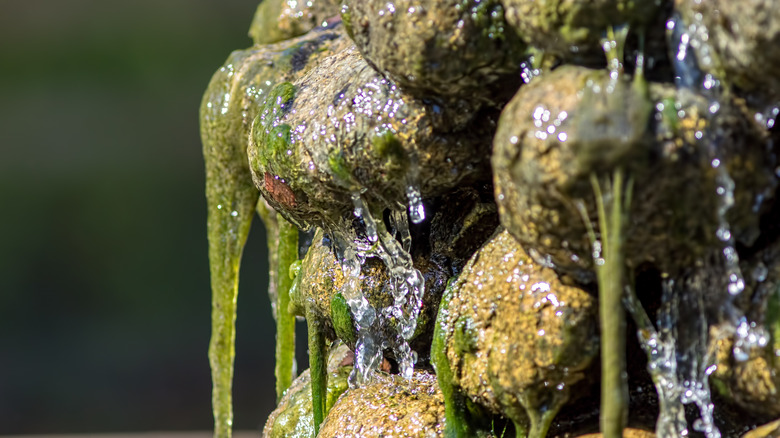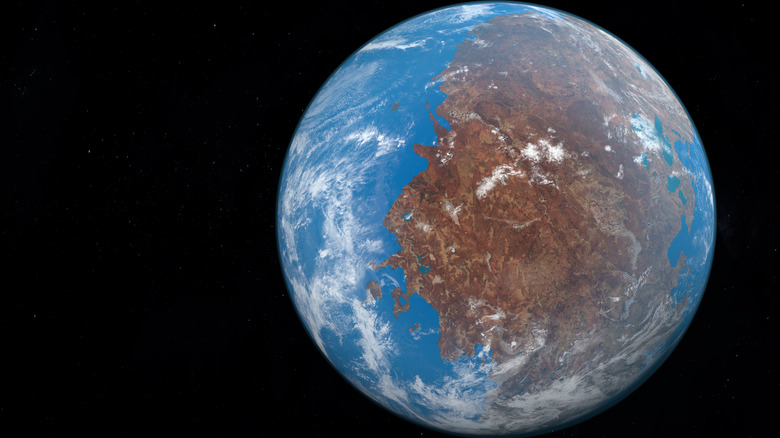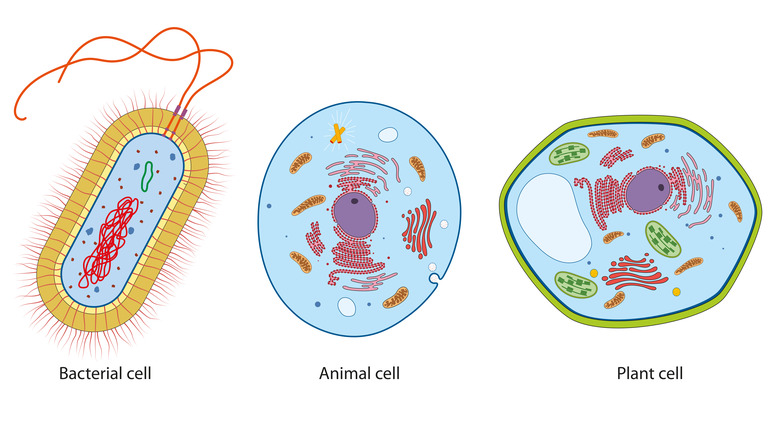Why Earth's 'Boring Billion' Years Weren't So Boring After All
The next time someone calls a 10-year-old movie "pretty old," or the 1950s "soooooooooooo long ago," feel free to raise a hand and say, "Well, actually," and proceed to describe Earth as 4.5 billion years old. Or describe the entire universe as 13.8 billion years old. In other words, it's taken a long, long time to get here. And our little ape race feuding and feeding in the cosmic void? When compressing the entire history of Earth into 24 hours, the Carnegie Museum of Natural History says that life appeared at 5 a.m., invertebrates at 8 a.m., and all 20-plus human species less than one second before midnight.
We can track our planet's 4.5 billion-year lifecycle thanks to a material that lasts a really long time: rock. Starting with geology, we can add the disciplines of paleogeography (ancient land formations), paleontology (ancient lifeforms), paleoecology (ancient ecosystems), and paleoclimatology (ancient climates) to form pictures of Earth's history. And out of all the changes that Earth's undergone in its lifetime, New Scientist explains that researchers regard the period from 1.8 billion to 750 million years ago as pretty uneventful. Things were stable — too stable — and not much happened. And so paleontologist Martin Brasier coined his catchy term, the "boring billion." But as The Conversation says, the boring billion was far from boring. It was a time replete with ocean life, and was absolutely critical to the development of life as we know it.
Waiting for Earth's simmering stew
"Never in the course of Earth's history did so little happen to so much for so long." No, that quote isn't referring to the term of a lame duck president or what is wrongly called "The Dark Ages." As Cosmos Magazine says, it's a riffed version of a Winston Churchill quote from World War II speaking of a 1940 air battle between Britain and Germany. Fast-forward 55 years to 1995 and geologist Robert Buick jokingly retooled Churchill's statement to describe Earth's Mesoproterozoic Era from 1.6 billion to 1 billion years ago as dull. Paleontologist Martin Brasier took the phrase and condensed it down to Earth's "boring billion." Accurate or not, the idea stuck.
But why was such a long period of time considered boring? Earth was like a giant vat of simmering stew for about a billion years. The planet's core had cooled, and the liquid on top — the ocean — needed time to percolate and cohere into refined chemical goodness suitable for advanced life. At the time, Earth's oceans were smelly, sulphur-and-iron-rich vats with almost zero oxygen. The first animal cells — eukaryotes — had already evolved, and were just sort of hanging out in the water. To those on the outside, it would have looked rather uneventful. But inside the ocean, deep and dense molecular changes were causing algae to grow in size, and as a result generate the oxygen that would revolutionize the planet.
The supercontinent cycle
Folks might have heard of Earth's supercontinent, Pangaea (300 to 200 million years ago), but might not realize that it was only the most recent of seven total supercontinents, preceded by Vaalbara, Ur, Kenorlan, Colombia, Rodinia, Pannotia. Continental drift has carried giant fragments of Earth's crust across the surface of the planet, back and forth, converging and diverging as life evolved from single-celled organisms all the way to hominids like us.
Starting at the end of the boring billion some 750 million years, the first shells cropped up 540 million years ago, and the first land plants 430 million years ago (per Ancient Earth Globe). Dinosaurs appeared around 220 million years ago, a full 100 million years before the first flowers. Grass didn't even exist until 35 million years ago.
So if Earth's boring billion wasn't full of dinosaur fights, it allowed something much more critical to develop: algae. Algae is the backbone of Earth's entire food web, and an evolutionary junction between plant and animal. Algae also produces most of Earth's oxygen. Over one billion years it transformed Earth's atmosphere and paved the way for the Cambrian revolution, where life splintered off into all the varied forms we see nowadays. Without it, Earth would be far more boring.
Stability before the storm
Plenty of scientists have pushed back against calling the period from 1.8 billion to 750 million years ago "boring." In 2020, for instance, researchers from the University of Aberdeen in Scotland discovered evidence that Earth was covered in glaciers during this time, earlier than expected. During the boring billion Scotland was down where South Africa is now, at a latitude where glaciers are currently impossible. In fact, Cosmos Magazine says that glaciers might have played an integral role in breaking apart the stability of the boring billion, as tectonic plates collided, mountains collapsed, and elements between the ocean and land mixed. That time period — about 700 million years ago — likely saw the rise and fall of lots of different variations of life that had been brewing in Earth's primordial ocean.
Just before Earth entered its billion-year lull in big, violent activity, it produced the first eukaryotes, like we mentioned. Eukaryotes — as opposed to prokaryotes like bacteria — are the same kind of cells that makes up all current plants, animals, and fungus. Eukaryotic cells are filled with structures that have membranes, like DNA-housing nuclei and energy-producing mitochondria. Without eukaryotic cells, multicellular organisms like trees, dogs, apples, or humans simply couldn't exist. It's not unreasonable to think that we lucked out when Earth entered its boring billion. Without such a long, extended period of stability where the ocean could simmer, not only might algae not have evolved, but all multicellular life since then.



